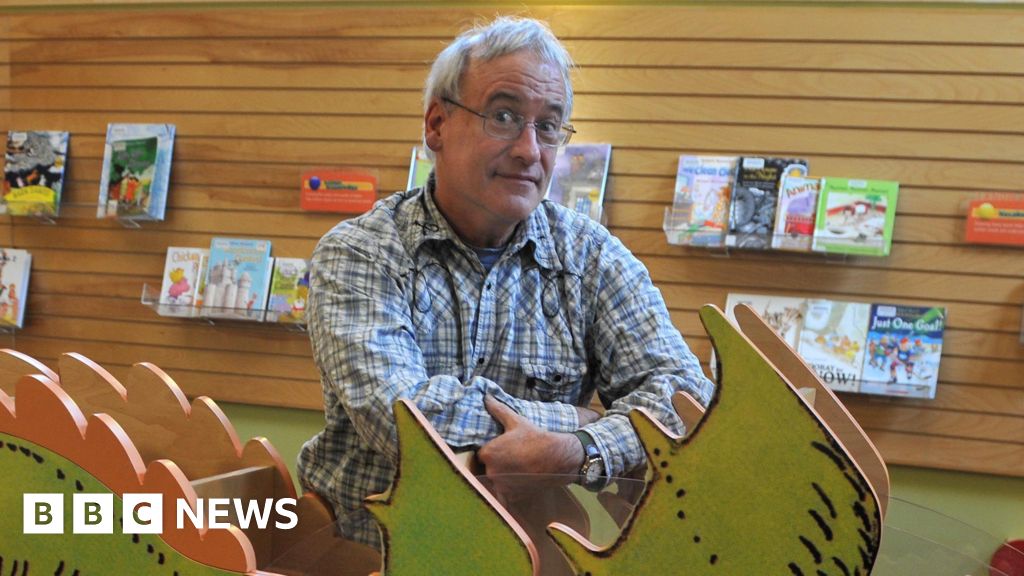
Canadian writer Robert Munsch approved for assisted dying

Canadian Author Robert Munsch Approved for Assisted Dying
Renowned Canadian children’s author Robert Munsch has been granted approval for medically assisted dying in Canada, a decision that has drawn attention due to his significant contributions to children’s literature and his ongoing health challenges. Munsch, best known for beloved titles such as *The Paper Bag Princess* and *Love You Forever*, has sold over 80 million copies of his books in North America alone, with translations available in at least 20 languages, including Arabic, Spanish, and Anishinaabemowin.
Health Challenges
Munsch’s health has been a concern since he was diagnosed with dementia in 2021, in addition to battling Parkinson’s disease. In a recent interview with *The New York Times Magazine*, he revealed that while he has not set a specific date for his assisted death, he plans to proceed when he begins to experience significant difficulties in communication. “When I start having real trouble talking and communicating. Then I’ll know,” he stated.
The Context of Assisted Dying in Canada
Canada first legalized euthanasia in 2016, allowing individuals with terminal illnesses to seek assisted dying. In 2021, the law was expanded to include those suffering from serious and chronic physical conditions, even if those conditions are not terminal. To qualify for assisted dying, individuals must be over 18 and meet several criteria. They must have a “serious and incurable illness,” make a “voluntary request that is not the result of external pressure,” and be in an “advanced state of irreversible decline in capability.” Furthermore, two independent doctors or nurse practitioners must evaluate the patient to ensure they meet all eligibility requirements.
Munsch’s decision to pursue assisted dying was influenced by personal experiences, particularly the passing of his brother from Lou Gehrig’s disease, also known as amyotrophic lateral sclerosis (ALS). He reflected on his brother’s experience, stating, “They kept him alive through all these interventions. I thought, let him die.” This perspective highlights the emotional complexities surrounding assisted dying, particularly for those who have witnessed the suffering of loved ones.
Public Response and Family Support
Munsch’s publisher, Scholastic, expressed support for the author’s decision to publicly discuss his choice regarding assisted dying. In a statement on Instagram, they remarked that Munsch’s openness “reminds us, once again, why Robert’s work continues to touch many generations.”
His daughter, Julie Munsch, also took to social media to address the situation. She noted that her father’s decision to pursue medically assisted dying was made five years prior and described the *New York Times Magazine* interview as “great.” However, she emphasized that the article did not indicate any immediate health crisis, stating, “nowhere does it say my dad isn’t doing well, nor that he’s going to die anytime soon.”
In accordance with Canadian law, individuals seeking assisted dying must be able to actively consent on the day of their death. Munsch acknowledged this requirement in his interview, saying, “I have to pick the moment when I can still ask for it.”
The Landscape of Assisted Dying in Canada
Assisted dying has become an increasingly relevant topic in Canada, with recent statistics revealing that it accounted for 4.7% of deaths in the country in 2023. The latest official government figures indicate that approximately 96% of the 15,300 individuals who underwent assisted dying that year had a death deemed “reasonably foreseeable,” primarily due to severe medical conditions such as cancer.
The discussion surrounding assisted dying continues to evolve, with advocates arguing for the rights of individuals to make choices about their own end-of-life care. Munsch’s case adds a personal narrative to this broader conversation, illustrating the intersection of literature, personal experience, and the ethical considerations surrounding assisted dying.
Conclusion
Robert Munsch’s story serves as a poignant reminder of the complex emotions and decisions surrounding assisted dying. As a beloved figure in children’s literature, his decision to speak openly about his health and choices resonates with many. His legacy, marked by his impactful writing and the joy it has brought to countless readers, will undoubtedly continue to influence generations to come.
—
Key Facts
– Robert Munsch is a celebrated Canadian author known for children’s books such as *The Paper Bag Princess* and *Love You Forever*.
– He has been diagnosed with dementia and Parkinson’s disease.
– Munsch has been approved for medically assisted dying in Canada.
– Assisted dying was legalized in Canada in 2016 and expanded in 2021 to include serious and chronic conditions.
– Munsch’s decision was influenced by the experience of watching his brother die from ALS.
– In 2023, assisted dying accounted for 4.7% of deaths in Canada, with the majority due to severe medical conditions.
– Munsch’s daughter, Julie, confirmed that the decision for assisted dying was made five years ago and emphasized that her father is not in immediate distress.
Source: www.bbc.com

